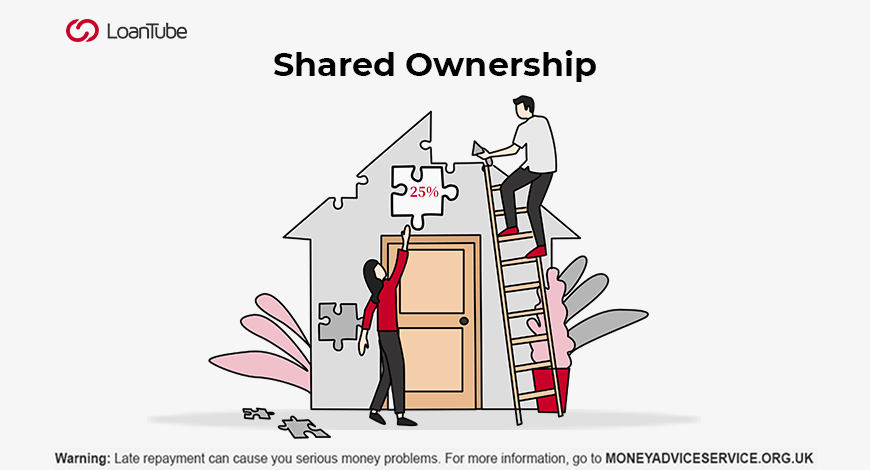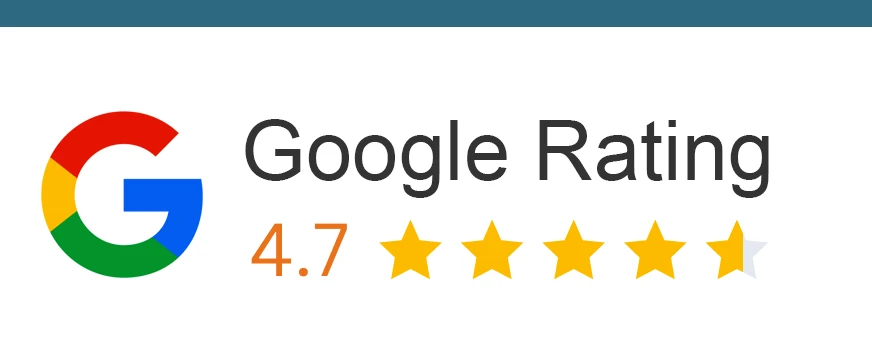Whether we’re working, or running a business, we all eventually aim to set our foot on the property ladder. Fortunately, the UK Government has rolled out some schemes to alleviate the stress of home-buyers. One such scheme that targets first-time home-buyers, is Shared Ownership.
In this article, we’ll answer some common queries about shared ownership, to help you make an informed decision.
Maximise your options: Compare and apply for loans below with LoanTube
Apply Filters
What is shared ownership?
A shared ownership scheme is a government initiative that aims to help people with lower income become homeowners. Although, an increasing number of people are opting for this scheme, irrespective of their income.
In simpler terms, shared ownership is a cross between buying a property and renting it. You, as a buyer, will own some share in your property, while the other will be rented at a reduced cost.
How does shared ownership work?
You can apply for shared ownership through Housing Associations. You can buy and own between 25% and 75% of the property and pay a discounted rent on the rest of the share until you can afford to purchase it. The rent that you pay either goes to the housing association or a private developer, depending on the deal you go through.
Since these houses are lease-held properties, there are maintenance charges involved from time to time. So owners have to pay a monthly charge that contributes towards the property’s upkeep.
You can use the ‘stair-casing’ method to gradually grow your share in the property. This allows you to buy the shares of your house at a 10% increment, ultimately reducing your rent.
Rates and restrictions for these properties are different for different providers – private developers and housing associations. You must research your options thoroughly and weigh the pros and cons of each before deciding.
Who is eligible for shared ownership?
There are different rules for taking up shared ownership in Northern Ireland, Scotland, and Wales. The eligibility criteria for using shared ownership in England is as follows:
- Your collective earning amount to £80,000 a year or less, outside of London.
- Your household income is £90,000 or less inside London.
- You’re looking to buy a property for the first time.
- You formerly owned property, but can’t afford one now.
- You’re currently in a shared ownership agreement, looking to move.
- You are a housing association or council property tenant.
Is shared ownership a good idea?
While shared ownership is an initiative that the government started in good faith, there are pros as well as cons associated with it. Take a look below and weigh both before choosing this option:
Pros:
- It is a great way for first-time homebuyers to step on the property ladder.
- This allows you to become a home-owner, with long-term stability without overstraining your finances.
- It offers lower deposits compared to open market properties.
- Shared ownerships makes mortgages more obtainable for people with a lower income.
- The monthly repayments can turn out to be more affordable than that of an actual mortgage.
- You are welcome to sell your shares at any point in time.
- If you staircase (the process of buying additional shares in a property) your property to 100%, you can freehold it after getting the housing provider’s approval. However, this is only applicable to some properties.
Cons:
- A limited number of lenders provide a mortgage for shared ownership.
- Even if you own a significantly lower share in the property, you’re liable to pay 100% of the ground rent as well as the maintenance charge.
- Once you own shares worth 80% and above, you will be charged a Stamp Duty on the actual value of the property.
- All properties are leasehold. To free them, you need to staircase to 100% and get the provider’s approval. Even if you do staircase, there are several additional costs to be taken care of – valuation fee, legal expense, stamp duty, and mortgage fee.
- You may want to consider the fact that shared ownerships are better for long-term tenancies. New properties come with an extra premium that depreciates. You might be risking negative equity on your property if you move and house prices fall.
- There are several restrictions on the kind of home improvement activities that you can do.
What is the difference between help to buy and shared ownership?
| Criteria | Help to Buy | Shared Ownership |
|---|---|---|
| Working |
The buyer can purchase a share of the property ranging between 25% to 75% and pay rent for the remaining share. |
Buyers can avail of a help-to-buy equity loan of up to 20% (40% in Greater London), wherein they need to raise a 5% deposit, with a mortgage covering the remaining 75%. |
| Eligibility |
|
|
| Types of Home |
Specific new built homes, below £600,000 in the market. |
|
| Deposit |
5% of the full value of the property. |
5%-10% on the shares that you purchase |
| Repayment |
Repayment is interest-free for the first 5 years, with a maintenance cost of £1 per month. Post the 5 year period, an annual fee of 1.75% is payable on the outstanding loan. |
You will have to pay towards the mortgage for the share that your own. Along with this, you have to pay a discounted rent for the rest of the share |
| Stamp Duty |
You may need to pay Stamp Duty Land Tax when you purchase. However, if you’re a first-time buyer, you will pay no Stamp Duty on properties worth up to £300,000. For homes costing up to £500,000, you will not pay Stamp Duty on the first £300,000 but will pay on the remaining amount up to £200,000. |
Stamp duty will be applicable to homes above £500,000. On homes up to £500,000, you have to pay zero stamp duty for the first £300,000. You will be required to pay stamp duty if you purchase an 80% share or above in your property. |
Financial Risks of Shared Ownership:
While shared ownership schemes offer a way to step onto the property ladder, they come with certain financial risks. Property values can fluctuate, meaning that if house prices fall, you may face negative equity, where the value of your property is less than the amount you owe on your mortgage. Additionally, if you decide to staircase (buy additional shares of the property), your financial situation may be impacted by changes in interest rates, which could lead to higher mortgage repayments. Maintenance charges and ground rent can also increase over time, adding to your financial obligations. It’s crucial to carefully assess your long-term financial stability before committing to a shared ownership agreement.
Disclaimer:
The information provided in this article is for general purposes only and does not constitute financial advice. Shared ownership schemes, mortgage products, and associated fees can vary significantly based on the provider and your personal circumstances. We strongly recommend that you seek independent advice from a qualified financial advisor before making any decisions related to shared ownership or property purchases. Always ensure that you fully understand the terms and conditions of any financial products you are considering.


